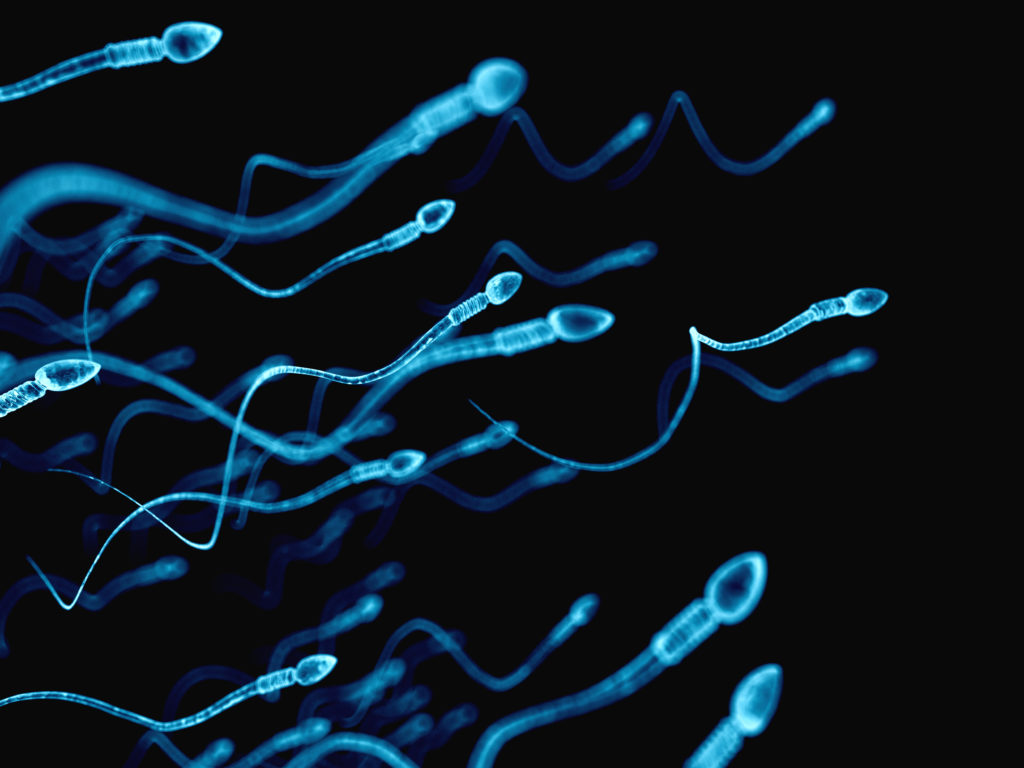Miscarriage: Often in a bad sperm quality of the man may be to blame
Recurrent miscarriage in connection with defective sperm
British scientists have found evidence that the poor sperm quality of the man can be to blame for the fact that women have a miscarriage. The study team hopes that the new findings will help in the search for treatments to reduce the miscarriage risk.
Thus increasing the risk of Miscarriage increases
A miscarriage is for women is always a traumatic event. To avoid them, it is important to know the possible causes and to avoid these as much as possible. British researchers have now gained new insights, thereby increasing the risk of miscarriage may increase. In one study, they found that a bad sperm quality of the father can be responsible for that.

More DNA damage
Scientists at the Imperial College London have investigated in this study, the sperm quality of 50 men, whose partners had suffered three or more consecutive miscarriages.
In the journal “Clinical Chemistry” published a study showed that the sperm cells in these men were compared to those whose partners had experienced no miscarriages, more DNA damage.
The researchers now hope that the new findings will help in the search for treatments to reduce the miscarriage risk, says a press release from Imperial College London.
Sperm health plays a role
According to the experts, it was assumed until recently that recurrent miscarriage births by health problems of the mother, such as infections or immune problems, caused.
But Doctors have now detected that the sperm health and may play a role, explained study author Dr. Channa Jayasena.
“Traditionally, Doctors in the search for the causes of recurring misconduct to the attention of the births addressed to women. The men’s health – and the health of your sperm – was not analyzed,“ said the scientist.
“This research, however, contributes to a growing number of Evidence suggesting that the health of the sperm determines the health of a pregnancy,” said Dr. Jayasena.
“Previous research suggests, for example, that sperm play an important role in the formation of the placenta for oxygen and nutrient supply to the fetus is of vital importance.”
Reactive Oxygen Species
In the current study, the Team analysed the semen of 50 men who were patients in the Recurrent Miscarriage Clinic of St Mary’s Hospital in London.
Then they compared the results with the sperm health of 60 male volunteers, whose partners had suffered a miscarriage.
The analysis showed that sperm of men with partners who had repeatedly suffered recurrent miscarriages, showed twice as much DNA damage as the control group.
The research team suggests that this DNA damage can be caused by so-called reactive oxygen species are triggered.
The information suggests that the concentration of these highly reactive molecules was increased in affected males by a multiple of Four.
Bacteria in the prostate
Reactive oxygen species can be formed, for example, in the course of the defense of bacterial infections in the body’s cells – however, if you take the upper hand and this can be harmful.
“Although none of the study suffered from at the time of the investigation, participants of a bacterial infection such as chlamydia, of which we know that they can affect sperm quality,” said Dr. Jayasena.
“However, from previous infections germs could be love in the prostate. This could lead to permanently high levels of reactive oxygen species.“
Obesity affects sperm quality
The author of the study added that there is growing evidence that obesity (obesity) affects the sperm quality – possibly because a high percentage of body fat can trigger an increase in reactive oxygen species.
In addition, it has been shown in previous studies that a high fat diet of the father, too much Cola, and marijuana is damaging to the sperm.
Furthermore, it was found in the current investigation, the men whose partner had suffered a miscarriage were older than those of the control group – with an average age of 37 years compared to 30 years ago. In addition, they were a bit heavier.
The Team is now investigating whether these factors may have influenced the content of reactive oxygen species.
Causes do not lie solely with the woman
“If confirmed in further Work, that high amounts of reactive oxygen species increase in the seed, the risk of a miscarriage, we could try to develop treatments that reduce this concentration and the likelihood of a healthy pregnancy,” said Dr Jayasena concluded.
“It has taken a long time, until it was realized that the health of the sperm plays a role in miscarriages – and that is the cause not only lies with women,“ says the researcher.
“Now it is clear to us that both partners contribute to recurrent miscarriage, and hopefully we can get a clearer picture of the Problem and look for Ways to ensure that more pregnancies lead to a healthy Baby.” (ad)


